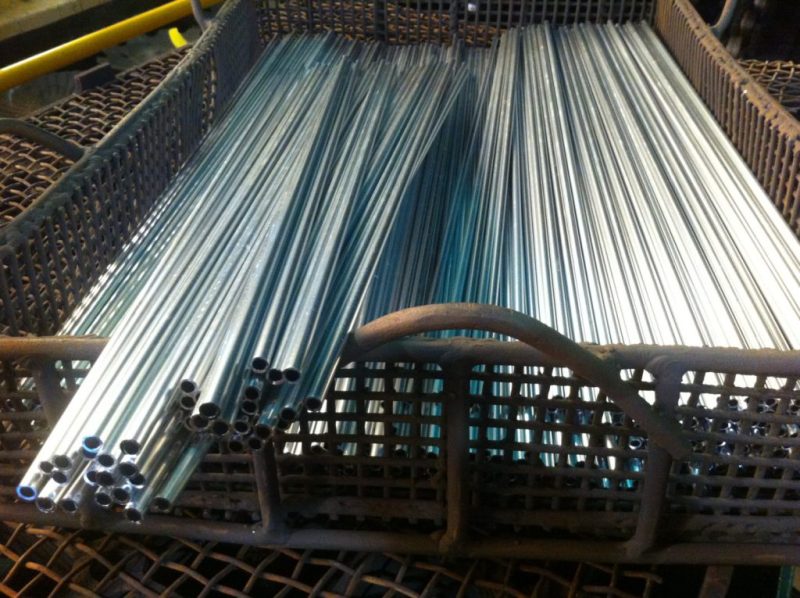
Discover how non-ferrous heat treatment enhances alloy properties. Explore the process of this treatment, benefits, and types of alloys with Alpha Detroit.
Non-ferrous heat treatment refers to the process of altering the physical and chemical properties of metals that do not contain iron as their primary component. This includes metals such as aluminium, copper, titanium, and their alloys. The primary goal of non-ferrous heat treatment is to optimise the material’s characteristics, making it more suitable for specific applications across various industries.
The Process
Non-ferrous heat treatment involves carefully controlled heating and cooling cycles. The exact process varies depending on the metal or alloy being treated and the desired outcome. Generally, the steps include heating the metal to a specific temperature, holding it at that temperature for a predetermined time, and cooling it at a controlled rate.
This process can be repeated multiple times to achieve the desired properties. The precise control of temperature, time, and cooling rate is crucial for successful non-ferrous heat treatment.
Benefits of Non-Ferrous Heat Treatment
Non-ferrous heat treatment brings several advantages to the table:
• Improved Strength and Hardness: Heat treatment can significantly increase the tensile strength and hardness of non-ferrous alloys. For example, in aluminium alloys, solution treatment followed by ageing can enhance strength, making the material more durable and resistant to wear and tear.
• Enhanced Ductility and Toughness: Proper heat treatment can improve the ductility and toughness of materials. This is particularly important for applications requiring materials that can withstand impact or stress without fracturing.
• Better Corrosion Resistance: Some heat treatment processes can enhance the corrosion resistance of non-ferrous alloys. For instance, in copper alloys, heat treatment can help improve resistance to environmental factors that might otherwise lead to degradation.
Types of Alloys That Require Heat Treatment
Non-ferrous heat treatment is essential for several types of alloys that do not contain iron as their primary component. Here are some key alloys that require heat treatment:
Aluminium Alloys
Commonly used in the aerospace, automotive, and construction industries, aluminium alloys benefit from heat treatment to enhance their strength and durability. Types of aluminium alloys that are often heat treated include 2000 Series (copper alloyed), 6000 Series (magnesium and silicon alloyed), and 7000 Series (zinc alloyed).
Copper Alloys
These alloys are used in electrical applications, plumbing, and industrial machinery. Heat treatment can improve their hardness and conductivity. Common copper alloys include bronze and brass.
Titanium Alloys
Valued for their high strength-to-weight ratio and corrosion resistance, titanium alloys are used in aerospace, medical implants, and high-performance applications. Heat treatment processes include alpha alloys and beta alloys.
Magnesium Alloys
Known for their lightweight properties, magnesium alloys are used in the aerospace and automotive industries. Heat treatment improves their strength and machinability.
Nickel Alloys
Used in extreme environments, such as in chemical processing and aerospace, these alloys benefit from heat treatment to enhance their mechanical properties and resistance to corrosion. Common nickel alloys include Inconel and Monel.
Each of these alloys requires specific heat treatment processes to achieve the desired properties, such as increased strength, improved corrosion resistance, or enhanced ductility. For the best results, relying on Alpha Detroit, an expert heat treatment specialist, we ensure that these processes are executed with the highest standards of quality and precision.
Optimized by: Netwizard SEO
